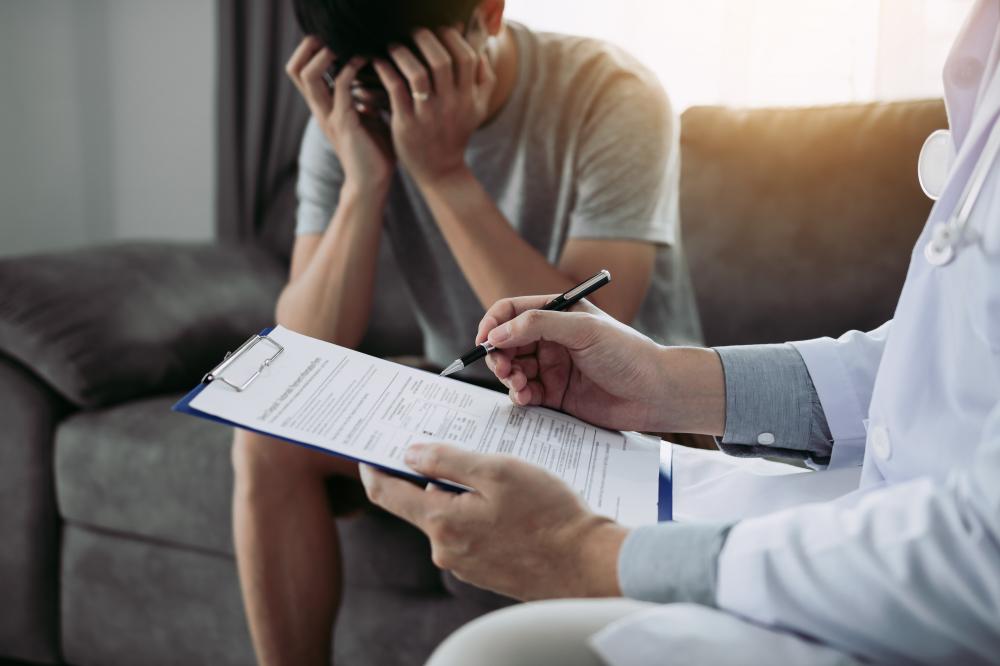Get In Touch
(888) 850-8111
Introduction Our Comprehensive Services Clinical Services Specializing in Co-Occurring Disorders Transitional Living Program Alumni Support Personal Insights…

At Colorado Behavioral Health, we understand the depth and complexity of navigating life with emotional, behavioral, and co-occurring disorders. As a staple in the heart of Colorado, we dedicate ourselves to providing a haven and structured programs for men and women grappling with these challenges. Our journey is deeply rooted in a commitment to holistic recovery, acknowledging each individual’s unique path toward mental wellness.
Residential Treatment
Our Residential Treatment offers clients a sanctuary for recovery, providing 24-hour medical supervision and an environment conducive to healing. This program is designed for individuals needing a high level of care and support through their recovery journey, ensuring a focus on both mental health and substance use disorders.
Outpatient Programs
Understanding the varied needs of our clients, we offer Partial Hospitalization and Intensive Outpatient Programs. These are structured yet flexible, aiming to provide care for those transitioning out of residential treatment or who require significant support without full-time care. Each program is tailored to meet the individual’s recovery goals, focusing on therapy, skills training, and community building.
Our clinical services are the backbone of our treatment approach, encompassing a range of therapies such as Dialectical Behavior Therapy (DBT), Cognitive Behavioral Therapy (CBT), and Acceptance and Commitment Therapy (ACT). Through these modalities, we address a myriad of mental health conditions, offering our clients the best chance at understanding, confronting, and managing their disorders.
One critical area of our expertise is in treating co-occurring disorders. Recognizing the intricacies of this dual diagnosis, our programs are intricately designed to combat the simultaneous occurrence of mental health and substance use disorders, ensuring a comprehensive approach to recovery that addresses both aspects holistically.
The journey towards independence is monumental for our clients. Our Transitional Living Program focuses on life skills development, educational and career guidance, and sobriety maintenance. This program is a testament to our belief in the possibility of a fulfilling life post-treatment, offering a supportive bridge back into society.
We believe the end of a treatment program is just the beginning of the recovery journey. Our Alumni Program provides ongoing support, resources, and community engagement opportunities for our former clients, ensuring they have access to a supportive network as they navigate the complexities of life post-treatment.
In my years of service at Colorado Behavioral Health, I’ve seen firsthand the transformative power of a compassionate, comprehensive approach to behavioral health. Our team’s dedication to tailoring treatment plans to individual needs has resulted in countless stories of recovery and resilience. One particularly memorable client had struggled with bipolar disorder and substance use for over a decade. Through our integrated treatment plan and relentless support, they found stability and are now thriving, a testament to the potential for change when comprehensive care is provided.
Choosing the right partner for your mental health journey is crucial. At Colorado Behavioral Health, we are not just a treatment center; we are a community committed to providing a pathway to recovery and well-being. Our multi-disciplinary approach, focused on treating the whole person, sets us apart. From our range of programs to our clinical services and personalized care plans, everything we do is aimed at helping our clients reclaim their lives and achieve lasting wellness.
If you or a loved one are facing the challenges of emotional, behavioral, or co-occurring disorders, know that you’re not alone. Colorado Behavioral Health is here to offer the support, guidance, and care needed to navigate this journey. Contact us today to learn more about our programs and how we can help you or your loved one find the path to recovery and wellness.

While specific names might change over time, the director of the Office of Behavioral Health in Colorado holds a pivotal role in shaping the policies, programs, and initiatives aimed at improving mental health services across the state. They are at the forefront of integrating and enhancing behavioral health systems to ensure that individuals have access to the necessary care and support. To find the current director’s name and more about their initiatives, visiting the official state website or Office of Behavioral Health’s homepage would provide the most up-to-date information. This role entails not just administrative duties but a profound commitment to advocating for mental health awareness, reducing stigma, and fostering a network of support for all Coloradans in need.
If you’re concerned about someone’s mental health and believe they pose a risk to themselves or others, it’s important to approach the situation with sensitivity and care. In Colorado, you can contact local law enforcement or the Colorado Crisis Services by phone or text for immediate assistance. They offer 24/7 support and can provide guidance on how to handle the situation. It’s crucial to provide as much information as possible about the individual’s behavior and why you are concerned. Remember, the goal is to ensure the person receives the help they need, not to penalize them for their condition.
The Colorado Behavioral Health Administration Community Services functions as a critical component in the state’s system of care, designed to support individuals with mental health and substance use disorders outside of institutional settings. These services cover a broad spectrum of needs, from prevention and early intervention to treatment and recovery support. They aim to be accessible and effective, focusing on integrating services within communities to allow individuals to receive care in the most supportive environment. Tailored to meet diverse needs, these services embody the state’s commitment to holistic, community-based care strategies that empower individuals and foster resilience.
The Colorado Commissioner of Behavioral Health Administration is responsible for overseeing the state’s behavioral health services, ensuring that they meet the needs of residents dealing with mental health and substance use disorders. This position plays a crucial role in policy development, implementation, and the allocation of resources to support the state’s behavioral health infrastructure. The commissioner works closely with a variety of stakeholders, including government agencies, health care providers, and community organizations, to promote integrated and comprehensive approaches to behavioral health. For the most current information about the commissioner and their initiatives, I recommend checking the official Colorado Behavioral Health Administration’s website.
Dialectical Behavior Therapy (DBT) is a highly effective therapeutic approach used to treat a variety of mental health conditions, particularly those characterized by intense emotional disturbances, such as Borderline Personality Disorder, PTSD, and depression. DBT focuses on teaching clients skills in mindfulness, distress tolerance, emotional regulation, and interpersonal effectiveness. These skills are crucial for individuals struggling to manage their emotions and behaviors, helping them build a life that feels more fulfilling and less controlled by their condition. Through DBT, clients learn to navigate their emotions without resorting to destructive behaviors, fostering a greater sense of personal control and resilience. This therapy emphasizes the balance between acceptance and change, which is fundamental to the healing process.
Personalized treatment plans are the cornerstone of effective mental health care, ensuring that each individual’s unique needs, circumstances, and goals are at the forefront of their recovery journey. Mental health conditions manifest differently in everyone, meaning there is no one-size-fits-all approach to treatment. By tailoring plans to the individual, practitioners can select the most appropriate therapies, medications, and support services, thereby improving the chances of successful outcomes. Personalized plans also empower clients, giving them a voice in their treatment and fostering a collaborative relationship with their care providers. This individualized approach respects the complexity of mental health challenges and recognizes the person behind the diagnosis, paving the way for more compassionate, effective care.